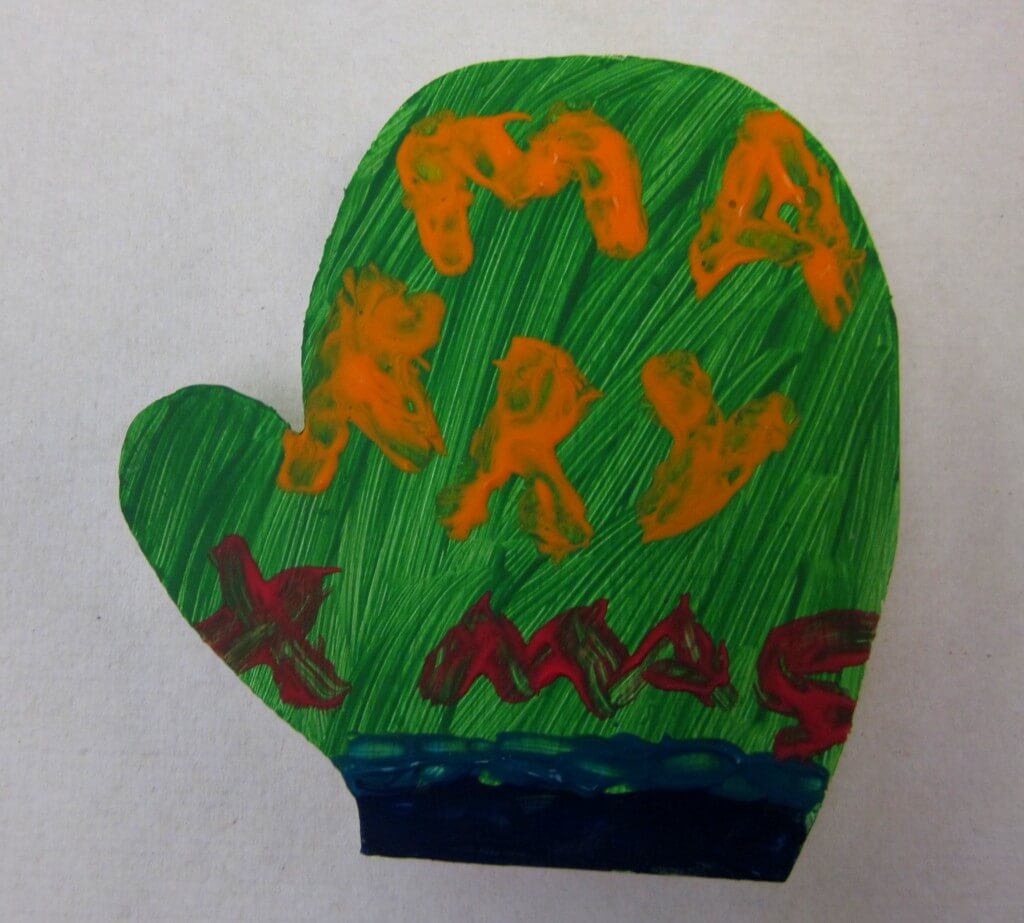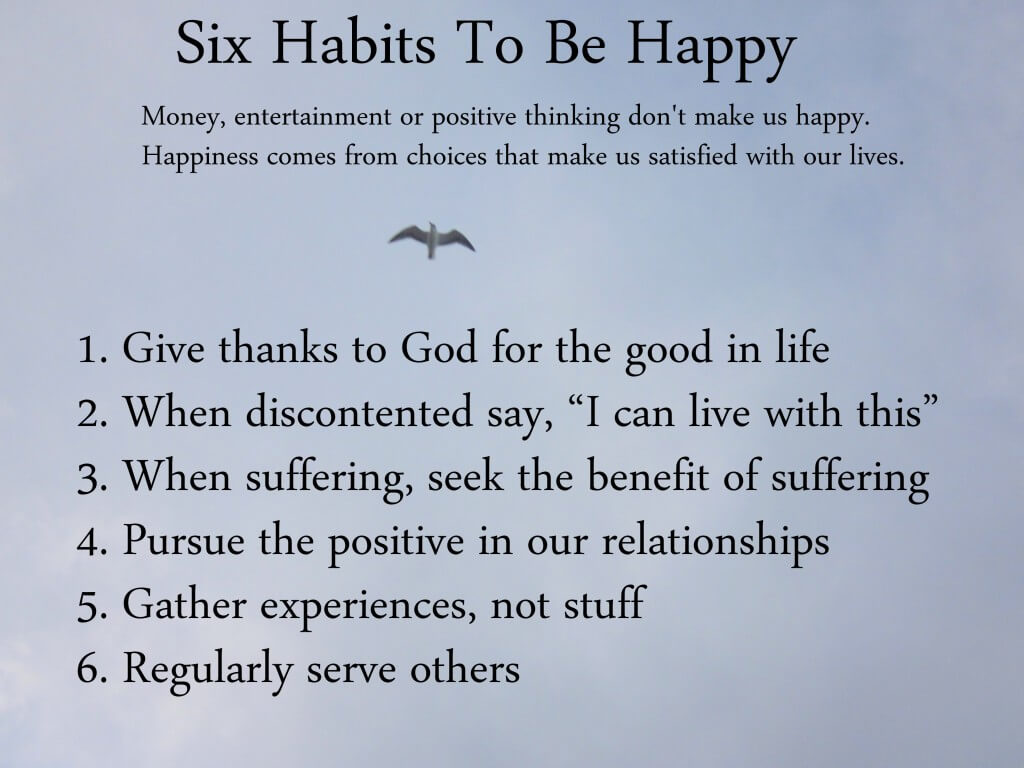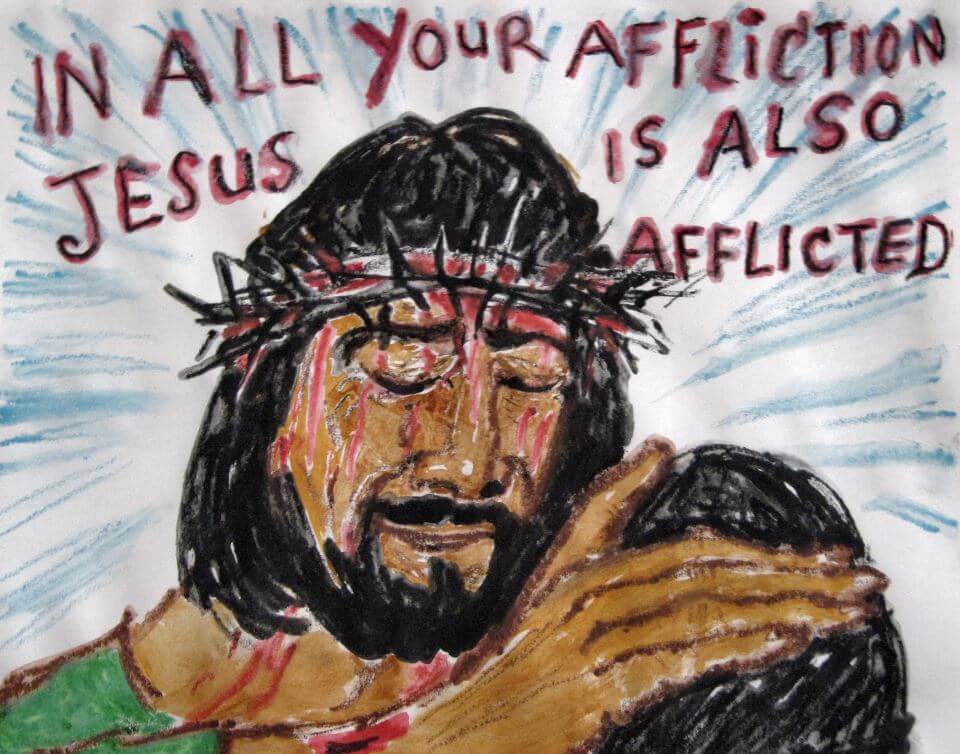-
The Work of Christmas Begins…
 When the song of the angels is stilled,
When the song of the angels is stilled,
When the star in the sky is gone,
When the kings and princes are home,
When the shepherds are back with their flock,
The work of Christmas begins:To find the lost,
To heal the broken,
To feed the hungry,
To release the prisoner,
To rebuild the nations,
To bring peace among brothers,
To make music in the heart.~Howard Thurman
-
Christmas Presence
 Yesterday afternoon Yvan was preparing to walk to the church office to play on the computer. I was looking out the window and there was this guy sitting on one of the Planter Boxes. We were closed and in fact all the shelters and day centers were closed. So I went with her just in case this was one of our less friendly guys.
Yesterday afternoon Yvan was preparing to walk to the church office to play on the computer. I was looking out the window and there was this guy sitting on one of the Planter Boxes. We were closed and in fact all the shelters and day centers were closed. So I went with her just in case this was one of our less friendly guys.As it turned out he was just sitting there wringing out his socks and trying to rub in some warmth to his cold feet. So I went and got him a pair of thick warm socks which he graciously accepted and then asked if there was a remote possibility of some food or even a loaf of bread.
So I got to make him a hot meal with some fresh fruit and a large cup of hot coffee. I told him we be open tomorrow on Christmas day and gave him the times and that there would be hot food and showers. Then I asked him if he had a camp and he didn’t so I told him the front porch on the house was open and he thanked me for that and then I went in to get him a refill on the coffee and when I came out he was gone.
Not gone like walked off, gone as in Gone. I went to the street he wasn’t there, nor at the porch, nor traversing the park, just Poof Gone!
Now that’s what I call a Christmas presence………..
-
Pursuing Happiness
 I am on a few philosophy forums, in which we respond to questions and posts with reasoned analysis—or at least that is the hope. One of the questions that sometimes circulate is sometimes phrased, “What is the greatest good?” or “What is the best life?” Most participants respond with a concern for their personal happiness, wanting to live a life of pleasure, or of intellectual or spiritual joy.
I am on a few philosophy forums, in which we respond to questions and posts with reasoned analysis—or at least that is the hope. One of the questions that sometimes circulate is sometimes phrased, “What is the greatest good?” or “What is the best life?” Most participants respond with a concern for their personal happiness, wanting to live a life of pleasure, or of intellectual or spiritual joy.And why not?
It is taught to us by our parents, by television and other media that the greatest concern for us as individuals is that we be happy, that we have all of our hopes and deepest desires met. There is nothing wrong with that, in and of itself. All the great religions and philosophies have personal joy and inner peace as a goal.
However, to obtain that happiness, we often forget what we must do to obtain that happiness. I believe that unless we work to bring joy to others, we will never find joy or peace within ourselves.
A couple, after having fallen in love, decide that they will live together, and make a commitment together to be a community. Once two people begin to live together, they find that their happiness is no longer just dependent on their own concerns, but also concerns for the other. If their partner is unhappy, then they are unhappy as well. So their peace depends not so much on striving for happiness themselves, but for trying to bring peace and contentment to another.
This basic principle grows the more we are involved with others. As we have family, we need to work for peace for all. The longer we are in a community, we find that the needs of the community are tied to our own. If we live in a city of a million people, any one unhappy person we meet on the bus or the street could ruin our day. Soon we find that our happiness is not a personal commodity, as if we were an island to ourselves. Rather, contentment for ourselves is dependant at least on every other person we meet. And, to a lesser degree, to every other person in the world.
Thus, I believe that our happiness cannot be created by meeting our own needs and fulfilling our own desires. Rather, happiness is to be found in relationship, in community.
I grew up in a middle class suburban community, insulated, where I never met anyone with real needs. Our way of life and consumption was what I thought of as “normal”. My ideals all changed when I lived in a few urban areas in India and Bangladesh. There, I was followed by beggars and saw my friends living in poverty that I had never experienced. I realized that those in need were just as human and just as good and bad as I was. They were my equals, but many of them are condemned to spend their lives picking through garbage piles for whatever benefit the hundred others who had been through that same pile had left.
After Diane and I had moved to Portland, OR, we began listening to and having community with the homeless. As I listened to the stories of the homeless, and began to share their experiences myself, my own joy and sorrow became tied into their own. But what I realize is that this is true for every single person who relates to my homeless friends. Every person who gives them spare change so they would be left alone, every man who says, “get a job,” every woman who spends a few moments chatting with the homeless, every person with hope who smiles at a homeless person—that small event changed their own level of happiness. It was an experience, built with other experiences with other people, that creates their own sense of well-being or grief. Should we participate in creating other’s grief, then we ourselves live lives of grief. But if we participate in other’s sense of well-being, then we can create well-being for ourselves.
Thus, I believe that “the good life” is found, not in seeking our own happiness, but in seeking other’s well-being. Yes, we can certainly create a sense of joy in ourselves if we get drunk, or if we watch a movie. But if our contentment is based on outside forces changing our own mood, we will soon cause sorrow in others who participate in our life. Self-focus ends up draining those who love us. But if we instead focus on assisting others to obtain happiness, whether in the short term or long term— If we give hand warmers to a stranger who shivers in the cold If we give a hamburger or energy bar for a person holding a sign declaring their hunger If we spend a half hour in conversation with someone who is desperately lonely If we share a movie we really enjoy with someone who has no pleasures in their life If we invite to a family holiday meal one who has no family to share it with— Then the happiness we share will be ours as well.
There is no personal happiness. There is only happiness we share with others, especially with those who have little joy in their lives.

-
Invisible Army
God has sent an army of invisible people throughout the world. They are in every nation, but most importantly among the most powerful people with the greatest amount of resources. These are innocent people, they have done no wrong, harmed no one. They are also desperately poor. Some may ask for help, others will not. But those of us with full pockets know of their need. The only question the universe asks of us is if we will help.
On the day of our passing, God will measure our mercy and compassion. And he doesn’t have any secret MRI that determines this. He will simply ask those whom He sent around us, “Did this one help you? Did she have compassion on you? Was he there for you in your desperation?”
God is establishing a kingdom. And his kingdom will be filled with people who learned enough of God’s love that they will see the person in need, just like God does. That the first question they ask themselves is, “Does this person need food, water, help”, not “Do they deserve it” just like God meets the needs of those who do not deserve it.
If you are a lover of God, then the real question is: Do you see like God sees? Do you see the needy with compassion or with disgust or avoidance?
-
Peacemaking
 Peacemaking is anger at injustice
Peacemaking is anger at injustice
And choosing to heal instead of punishPeacemaking is the war against hatred,
Judgment and apathy, harming none.Peacemaking is entering into another’s life
By listening to their storyPeacemaking is welcoming the outcast
And creating a safe place for themPeacemaking comes from inner peace
Inner peace comes from silencePeacemaking is making a plan for the needy
In order to help them thrivePeacemaking is choosing the one-down
In order to support othersPeacemaking is confronting the wrongdoer
And forgiving them Peacemaking is living for oneself
Peacemaking is living for oneself
By living for othersPeacemaking is rejecting rejection,
Judging judging and turning away from apathy.Peacemaking is standing with the outcast
By yourselfPeacemaking is creating a community
Of the hated and the loversPeacemaking is healing one’s own soul
By restoring othersPeacemaking is Jesus on the cross
Bringing God into this world through surrendering oneself
3733 N Williams Ave
Portland, OR 97227
503.888.4453
AnawimCC@gmail.com
Ministry Locations and Times »











